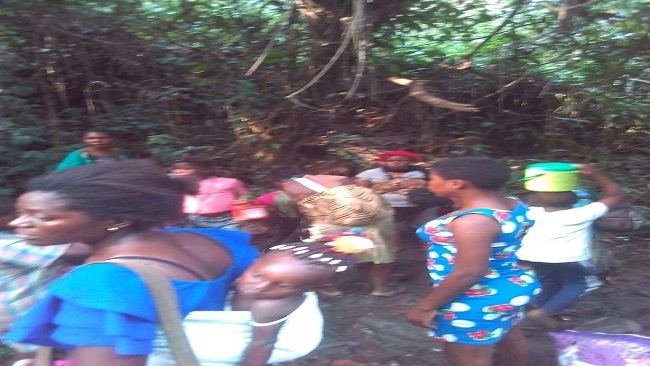9, October 2019
Yaounde begins training teachers to guide internally displaced Ambazonia students 0
Cameroon’s Ministry of Secondary Education on Tuesday began training teachers on how to counsel and guide internally displaced school children.
According to Cameroon’s Minister of Secondary Education, Pauline Nalova Lyonga, the training came as a result of growing internal displacement of people in the country caused by an armed conflict in the country’s English-speaking regions.
“Our country is facing a lot of challenges and the teacher is right at the center of this because we have to teach and transmit the right attitudes to the next generation.” Lyonga told reporters at the start of the training in the capital, Yaounde.
She said, the teachers after the three-day training will be able to teach the children to “remain responsible and focus”.
According to Lyonga, it is teachers’ job to make sure that students from separatism-hit regions can feel like at home in the Francophone part of Cameroon.
“If the teacher must give that value (of unity) to the children, he himself must have the value,” she added.
A UNICEF report released in August estimates that insecurity spreading across the regions has left more than 4,400 schools forcibly closed, affecting more than 600,000 children.
According to UN estimations in July, the conflict in Cameroon’s Anglophone regions has resulted in about 530,000 internally displaced persons (IDP) among them, many children and teenagers struggling to resume schooling with very limited resources.
Since 2017, armed separatists have been clashing with government forces in the regions in a bid to create an independent nation they call “Ambazonia”.
A national dialogue to end the separatist conflict held in the country last week and recommended that greater autonomy should be given to the English-speaking regions of Northwest and Southwest.
Source: Xinhuanet





























10, October 2019
Austrian Handke, Poland’s Tokarczuk win Noble literature prizes 0
Austrian writer Peter Handke won the 2019 Nobel Prize for Literature on Thursday and the 2018 award went to Polish author Olga Tokarczuk, the Swedish Academy said on Thursday.
Handke, 76, was recognized for a body of work which includes novels, essays, notebooks and drama and “that with linguistic ingenuity has explored the periphery and the specificity of human experience,” the Academy said in a statement.
Tokarczuk, 57, won for “a narrative imagination that with encyclopaedic passion represents the crossing of boundaries as a form of life,” it said.
Both have courted controversy – Handke for his portrayal of Serbia as a victim during the Balkan wars and attending its leader’s funeral, and Tokarczuk for touching on dark areas of Poland’s past that contrast with the version of history promoted by the country’s ruling nationalist party.
Two prizes were awarded this year after last year’s award was postponed over a scandal that led to the husband of an Academy member being convicted of rape.
Since then, the organization has appointed new members and reformed some of its more arcane rules after a rare intervention by its royal patron, the king of Sweden.
Academy member Anders Olsson said both Handke and Tokarczuk had accepted their prizes.
“I only talked to Peter Handke myself. He was very, very moved. At first he did not utter any words,” Olsson said. He added: “It is not a political prize, it is a literary prize.”
Handke established himself as one of the most influential writers in Europe after World War Two, the Academy said. He also co-wrote the script of the critically-acclaimed 1987 film “Wings of Desire”.
The author of books such as “The Goalie’s Anxiety at the Penalty Kick” and “Slow Homecoming”, he attracted widespread criticism attending the funeral of former Yugoslav President Slobodan Milosevic in 2006.
Tokarczuk trained as a psychologist before publishing her first novel in 1993. Since then, she has produced a steady and varied stream of works and her novel “Flight” won her the high-profile Man Booker International Prize last year. She was the first Polish author to do so.
Though some of the episodes she has written about contrast with version of history promoted by Poland’s ruling Law and Justice (PiS), her agent said the award should not be seen in the context of a parliamentary election being held on Sunday in Poland.
Speaking on Polish television, Poland’s culture minister, Piotr Glinski, said the award to Tokarczuk was a success for Polish culture.
“I think that Mrs Tokarczuk also perceives this that way, because she is a representative of Polish culture and Polish literature,” he said.
(Source: Reuters)